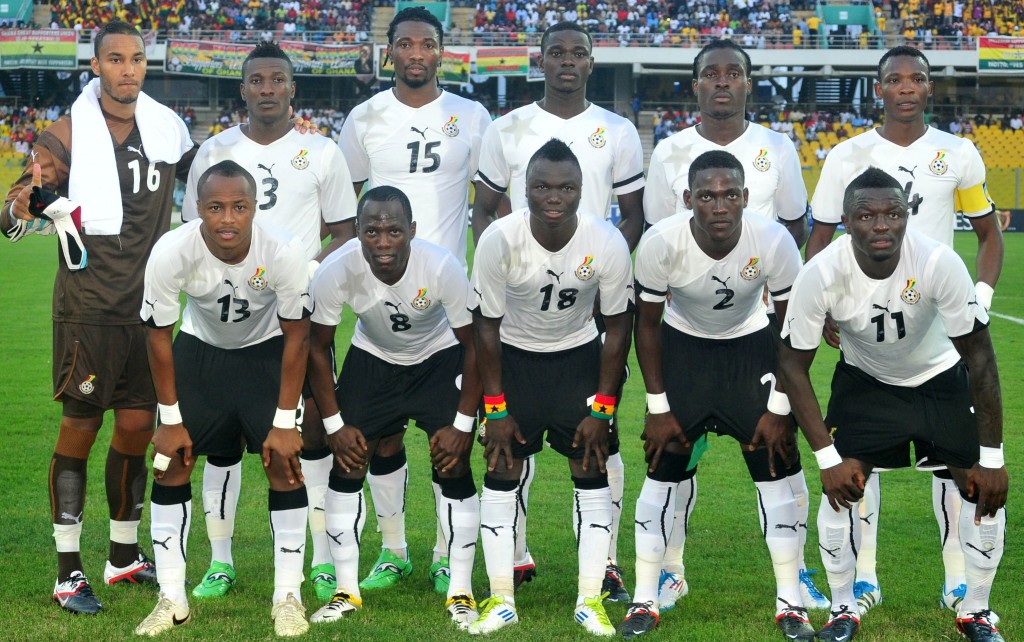Written by: Marcel Desailly, Ghana-born ex-France captain
African Cup of Nations is now almost upon us and there is no doubt that this will be a very interesting tournament.
The line-up of this year's competition, which kicks off on 21st January at the Estádio de Bata, Equatorial Guinea, tells its own story and shows how much the qualifiers have shaken the established order of African football.
Reigning Champions and winners of the last three Cup of Nations competitions, Egypt, stunned the African football world by finishing bottom of their qualifying group and will be notable absentees from African football's showpiece competition.
Algeria, Nigeria and Cameroon – all former Cup of Nation winners – will also be absent after surprisingly disappointing qualifying performances. Of the 16 teams involved, only five are previous Champions.
Meanwhile, three countries will be making their Cup of Nations debuts – co-hosts Equatorial Guinea, along with the surprise package from qualifying Group K, Botswana, and then Niger who triumphantly emerged from the qualifying group featuring Egypt and 2010 World Cup hosts South Africa, who also failed to qualify.
This brings to the fore the emerging changes in the landscape of African football. It’s clear that, many African countries no longer take things for granted.
I was present at the draw for the 2012 Cup of Nations in Malabo, Equatorial Guinea, at the end of October, and once the groups came out of the hat it certainly signaled the start of the count-down to all the action – and now is the time for all the predictions to start!
I don't mean to sound biased but think it's fair to say that Ghana is certainly one of the teams to watch out for.
We go into the contest as the most successful CAN side involved with four titles to our name, and we will be looking to put to rest the disappointment of losing to Egypt in the Final last time around.
Having also reached the Quarter Finals of the World Cup a few months later – in the process becoming the first African side to go beyond the group stages – Ghana will have the experience of what it takes to progress in a big tournament like this.
And while we have done well in the Cup of Nations in recent years (we also came third in 2008) we last actually won the title back in 1982 after beating Libya on penalties in Tripoli, so we are long overdue bringing the trophy home having come so close at the last two competitions.
We qualified quite easily and got an assurance that the departure of former coach Milovan Rajevac did not have much negative effect on the team.
Collectively and technically Ghana is a very strong team and I think our combination of youth and experience will serve us well, with the likes of Asamoah Gyan and Sulley Muntari lining up alongside promising youngsters like the brothers Andre and Jordan Ayew (whose father is Ghanaian legend Abedi Pele) and Emmanuel Agyemang-Badu.
It is also good to see three Ghanaian-based players make Goran Stevanovic's 25-man squad – Edubiase striker Emmanuel Baffour who has topped the goal scoring chart in the Ghana top flight this season, along with goalkeepers Daniel Adjei and Ernest Sowah.
However we will be without the injured Michael Essien, and while success in a tournament like this is about the team effort, nobody can argue that when your squad is missing one of the world’s best midfielders, you won't feel it.
The other big favourite is undoubtedly Ivory Coast.
François Zahoui’s side won all of their qualifiers and on paper is indeed a daunting prospect for any opponent, with the likes of Captain Didier Drogba, Gervinho, and the Touré brothers, along with Zokora, Eboue and Kalou, all of whom have played at the highest level in Europe.
Whoever is to lift the trophy will have to be on top of their game.
As a former World Cup and European Championship winner, I can tell you that discipline and concentration are two very important factors for any team to go the distance in a major tournament like this, and they must sit side by side with pure ability on the pitch for success to come.
It is also a misconception to assume that just because the likes of Egypt and Cameroon are absent, that the task will be any less difficult for Ghana or Ivory Coast.
Every nation present in Equatorial Guinea and Gabon is there on merit.
Mali are a very difficult side to beat, Senegal have caused a few surprises recently and I also think that Zambia have the potential to surprise a few people too, even though they will not be playing under Dario Bonetti, the coach who guided them to qualification and who has since been replaced by Hervé Renard.
I will also be keeping a close eye on Morocco and Tunisia who could be interesting outside bets and who could cause upsets.
I would like to take this opportunity to congratulate my fellow Guinness Football Challenge colleague Jay Jay Okocha and Morocco’s Mustapha Hadji, who were honored with the Confederation of African Football Legends Award in Accra last month.
I hope Jay Jay will be bringing all his skills along with him when we face each other in the Celebrity Finale of the Guinness Football Challenge in February.
I will be striving for that top spot!
The writer is Marcel Desailly, the former France captain who was born in Ghana.
